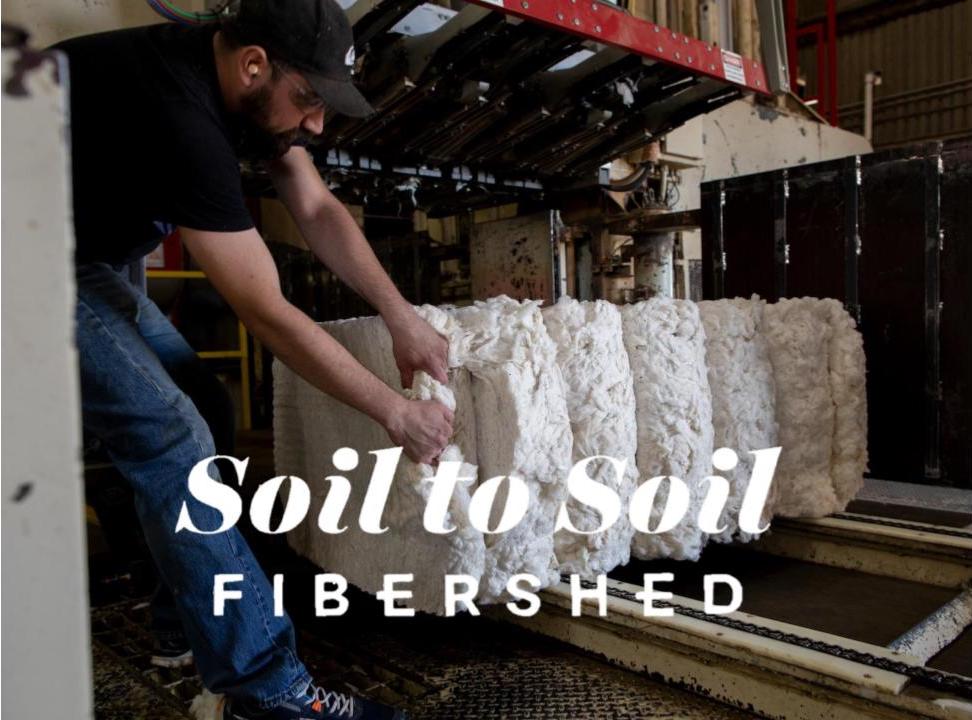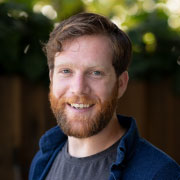

In this episode we’re taking a look at manufacturing systems and learning about some of the missing links and key opportunities that would help make locally grown clothing more accessible in the Western United States.
The Regional Fiber Manufacturing Initiative is developing a manufacturing system to regionalize the production of textiles, support local economies, and contribute to climate solutions. We call it the RFMI for short, and it’s an effort organized by Fibershed and led by a stewardship committee, which Nick and Adrian are part of.
 Adrian Rodrigues is Co-chair of the stewardship committee. He is a Co-Founder and a Managing Director of Provenance Capital Group where he helps develop blended capital structures that catalyze resilient biological systems and businesses. Before Provenance, Adrian co-founded the boutique consulting firm Hyphae Partners where he helped companies finance and build regenerative business models. He has also lectured on food innovation at the University of California Berkeley Haas School of Business and designed and taught an entrepreneurship intensive for farmers at the Stone Barns Center for Food & Agriculture. Adrian is a graduate of Berkeley Haas’ full-time MBA program. At Haas, Adrian was a Portfolio Manager of the Haas Socially Responsible Investment Fund and a Member of the Center for Responsible Business’ Student Advisory Board. He received a B.A. in English from Williams College, studied English literature at Exeter College, Oxford University, and holds the Chartered Financial Analyst designation. He’s an avid chef, backyard farmer, and budding yogi.
Adrian Rodrigues is Co-chair of the stewardship committee. He is a Co-Founder and a Managing Director of Provenance Capital Group where he helps develop blended capital structures that catalyze resilient biological systems and businesses. Before Provenance, Adrian co-founded the boutique consulting firm Hyphae Partners where he helped companies finance and build regenerative business models. He has also lectured on food innovation at the University of California Berkeley Haas School of Business and designed and taught an entrepreneurship intensive for farmers at the Stone Barns Center for Food & Agriculture. Adrian is a graduate of Berkeley Haas’ full-time MBA program. At Haas, Adrian was a Portfolio Manager of the Haas Socially Responsible Investment Fund and a Member of the Center for Responsible Business’ Student Advisory Board. He received a B.A. in English from Williams College, studied English literature at Exeter College, Oxford University, and holds the Chartered Financial Analyst designation. He’s an avid chef, backyard farmer, and budding yogi.
 Nicholas Wenner is also co-chair of the Stewardship Committee and he works as an engineer to design regenerative materials and manufacturing systems. He earned a B.S. in Earth Systems and an M.S. in Mechanical Engineering with a focus on manufacturing from Stanford University, where he taught design and manufacturing through the Product Realization Lab. Nicholas recently led R&D and process engineering for MycoWorks to create a leather-inspired material from fungi, authoring 7 patents. Other experiences include crafting natural animal leathers in the mountains of Eastern Washington, designing botanical indigo dye production systems with Fibershed’s True Blue project, and developing modern products with 3-D modeling and CNC machining. He aims to bridge the wisdom of the past with the possibilities of today to foster mutually supportive relationships between modern humans and the world that sustains us.
Nicholas Wenner is also co-chair of the Stewardship Committee and he works as an engineer to design regenerative materials and manufacturing systems. He earned a B.S. in Earth Systems and an M.S. in Mechanical Engineering with a focus on manufacturing from Stanford University, where he taught design and manufacturing through the Product Realization Lab. Nicholas recently led R&D and process engineering for MycoWorks to create a leather-inspired material from fungi, authoring 7 patents. Other experiences include crafting natural animal leathers in the mountains of Eastern Washington, designing botanical indigo dye production systems with Fibershed’s True Blue project, and developing modern products with 3-D modeling and CNC machining. He aims to bridge the wisdom of the past with the possibilities of today to foster mutually supportive relationships between modern humans and the world that sustains us.
In this interview we’re reflecting on just a piece of the puzzle that Nick, Adrian, and the RFMI contributors have been working on in the last 12-18 months, from mapping current resources to scoping out what’s needed to catalyze a regenerative west coast fiber system.
We know that there is so much need for transformation in the fashion and textile industry, and we see hundreds of millions of investment dollars going to material development start-ups, but what we’ve learned is we’re not even making use of much of the material we already have. We’ll hear more about how much natural fiber is produced, how value chains can support fiber production that restores ecosystem health, and all about the process and strategy for building that manufacturing system in the Western US, or how you can begin scoping in your home community.
Show Notes:
- Learn more about the Regional Fiber Manufacturing Initiative (RFMI)
- Check out an overview of the RFMI’s Ecosystem Mapping with this article: 3 Maps Show How We Can Unlock Local Clothing Industries
- See how regional manufacturing is key to creating clothing that acts as a carbon sink: LCA-wool-garment
- Visit Fibershed’s National Mill Inventory
- Hear how fiber becomes yarn in Episode 4 with Ben Hostetler of Mountain Meadow Wool Mill
- Learn how cooperative structures can play a role in regional manufacturing development: Benefitting Climate & Communities: How Clothing Cooperatives Could Grow Equitable Regional Economies
- Watch the replay of the 2020 Fibershed Symposium panel discussion moderated by Adrian Rodrigues, called “Regionally Grown, Regionally Made, Regionally Worn” with Jon Long, Carolina Textile District Representative, Taylor Jay, founder of Taylor Jay Collection, Italia Hannaway, Sustainable Fashion Designer of Italia A Collection, Marissa Nuncio from the Garment Worker Center, and Kathryn Ervin from The Industrial Commons
Thanks for listening to the twelfth episode of Soil to Soil, a podcast connecting the dots in the lifecycle of clothing and material culture, brought to you by Fibershed, which is a non-profit organization based in Northern California. Each episode offers a look at how, and why, our community is working to cultivate fiber and dye systems that build soil & protect the health of our biosphere.
This episode is hosted by Jess Daniels, with production support from Whetstone Media and music by Arann Harris. Photo credits: Paige Green Photography.
